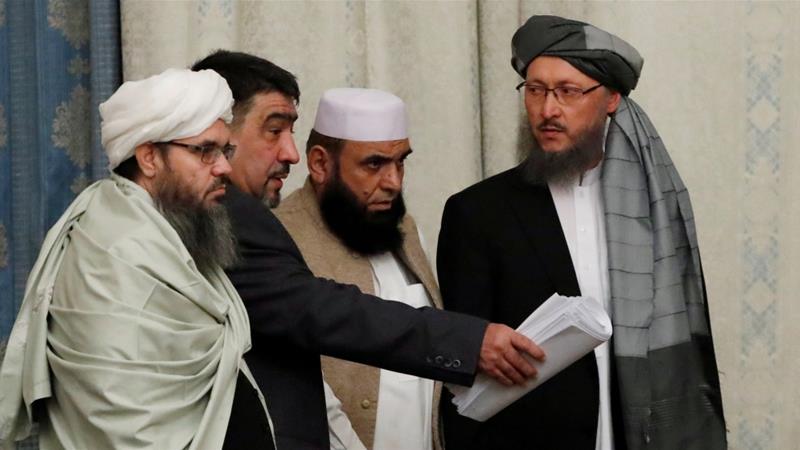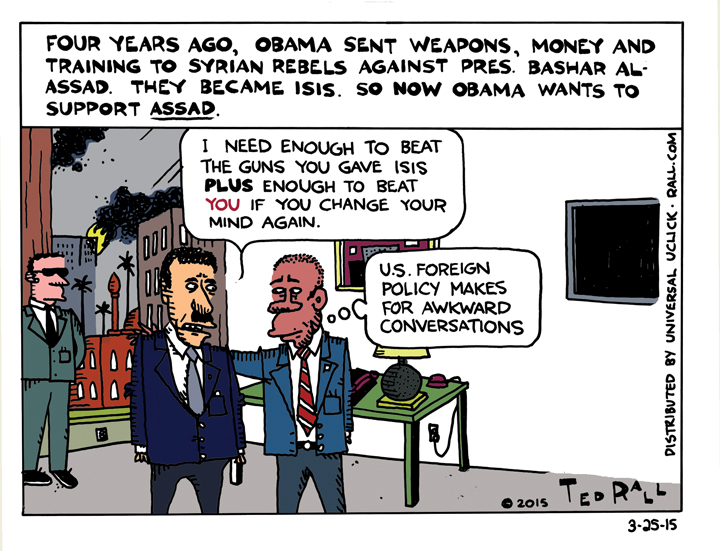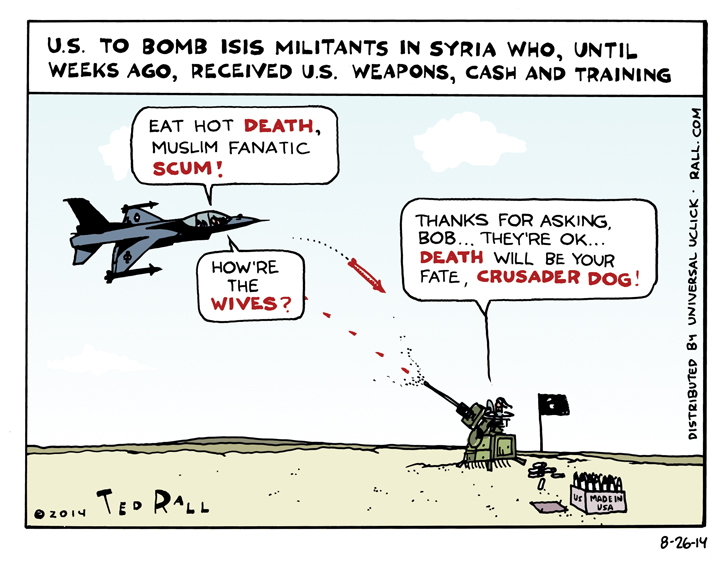
Trump is terrible. Biden is just as bad. In some ways the Democrat is worse.
You shouldn’t vote for either one.
Trump is erratic and unpredictable, which is dangerous. Even so, Biden is worse than Trump on international relations.
At the center of the president’s worldview is a deep, admirable and prescient skepticism about foreign interventionism. Trump began criticizing the Iraq War soon after it began, when the U.S. invasion was still popular. His critiques continued during the 2016 primaries—have you known of another Republican to campaign against militarism? As president-elect Trump told a room full of service members: “We will stop racing to topple foreign regimes that we know nothing about, that we shouldn’t be involved with.”
Trump signed the first peace agreement with the Taliban; he plans to bring home the last American troops in Afghanistan before Election Day—even sooner than required under the deal. He refuses to be goaded into a new Cold War against Russia, has met with the leader of North Korea and has offered direct talks with Iran—positions far to the left of hawkish pro-war Democrats like Hillary Clinton, Barack Obama and Joe Biden.
Because most Americans are self-centered and unconcerned about brown people in other nations, it’s ridiculous yet necessary to remind you that the Afghans we bomb are real people like you and me, that Iraqis are scarred for life when their children are hobbled by American bullets, that Yemenis cry for their dead blown to bits by American missiles, that our insane decision to turn Libya from the most prosperous country in Africa into a failed state with 21st century slave auctions is an atrocity, that we have murdered hundreds of thousands of innocent people in the last couple of decades for no reason that can be justified under common sense or international law.
The United States is the greatest exporter of death, oppression and exploitation on the planet. Every human being has the duty to oppose it. We who pour our taxes into the U.S. government have the biggest duty of all to fight the war machine. That begins with holding the murderers and their enablers accountable for their—there is no better word—evil.
Wars of choice are not horrors of happenstance, like a tornado. Political leaders vote to slaughter and maim men, women and children and ruin economies around the globe, leading to still more death. Some politicians are especially nefarious, convincing other politicians to vote for mass murder.
Politicians like Joe Biden.
Most recently, after Trump signaled his willingness to dump U.S.-backed rightist Juan Guaidó and meet with Venezuelan president Nicolás Maduro, a socialist, Biden called Maduro a “dictator” and pledged fealty to right-wing Venezuelan exiles in South Florida. It was the latest in a long line of foreign policy calls that we have come to expect from a right-wing Republican like George W. Bush—yet Biden plays a “Democrat” on TV.
“He’s registered some antiwar positions from time to time, as when he voted against the first Gulf War or opposed the funding of the Nicaraguan contras in the 1980s. But overall, he’s racked up a track record of supporting overseas adventures,” observed Branko Marcetic, writing for Jacobin.
Biden, notes Marcetic, pushed for “the 1999 bombing of Serbia, which actually dissolved the local pro-democracy movement and rallied popular support around the country’s dictator.” Biden voted for the U.S. wars against Afghanistan and Iraq. “I voted to go into Iraq, and I’d vote to do it again,” Biden said in August 2003. Now he defends himself by saying he was so stupid that he fell for Bush’s lies about WMDs.
Biden was the guy who convinced Obama to ramp up Bush’s drone assassination program, which kills 50 innocent bystanders for every 1 targeted “militant”—who often gets away and is rarely a threat to the United States, just to our authoritarian allies. Someday soon Biden’s drone killings abroad will be used to justify killing Americans here at home.
Elsewhere Marcetic writes: “When Reagan invaded Grenada in 1983, bombing a hospital in the process, Biden said he ‘did the right thing.’ When he bombed Libya three years later, killing 36 civilians and dictator Muammar Gaddafi’s 15-month-old daughter, Biden said, ‘There can be no question that Gaddafi has asked for and deserves a strong response like this.’ And when George H. W. Bush invaded Panama three years after that, an outrageous war to depose a leader who had been a CIA asset and that saw dead civilians ‘buried like dogs,’ as one witness put it, Biden called it ‘appropriate and necessary.’”
A vote for Biden isn’t just a vote against Trump. It’s a vote in favor of Biden’s vote to kill one million Iraqis. If we elect Joe Biden, we will send a message to the world: America hates you, we’re glad we killed all those people and we plan to kill more.
It will also send a message to Biden: Heckuva job, Joe!
(Ted Rall (Twitter: @tedrall), the political cartoonist, columnist and graphic novelist, is the author of the biography “Political Suicide: The Fight for the Soul of the Democratic Party.” You can support Ted’s hard-hitting political cartoons and columns and see his work first by sponsoring his work on Patreon.)








